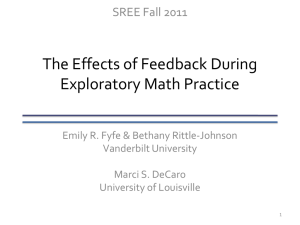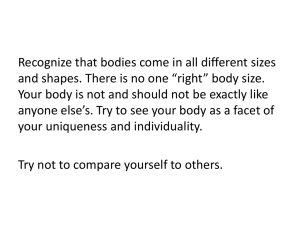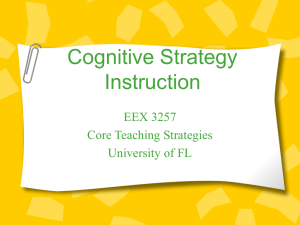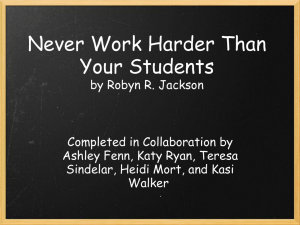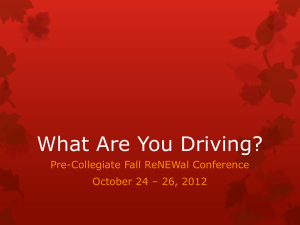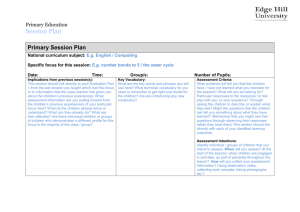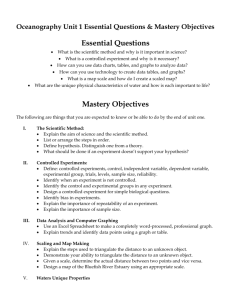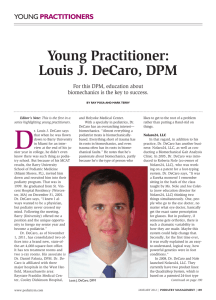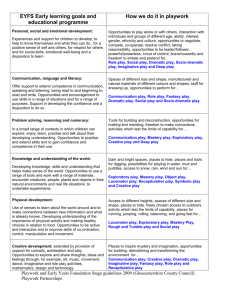abstract - Peabody College
advertisement
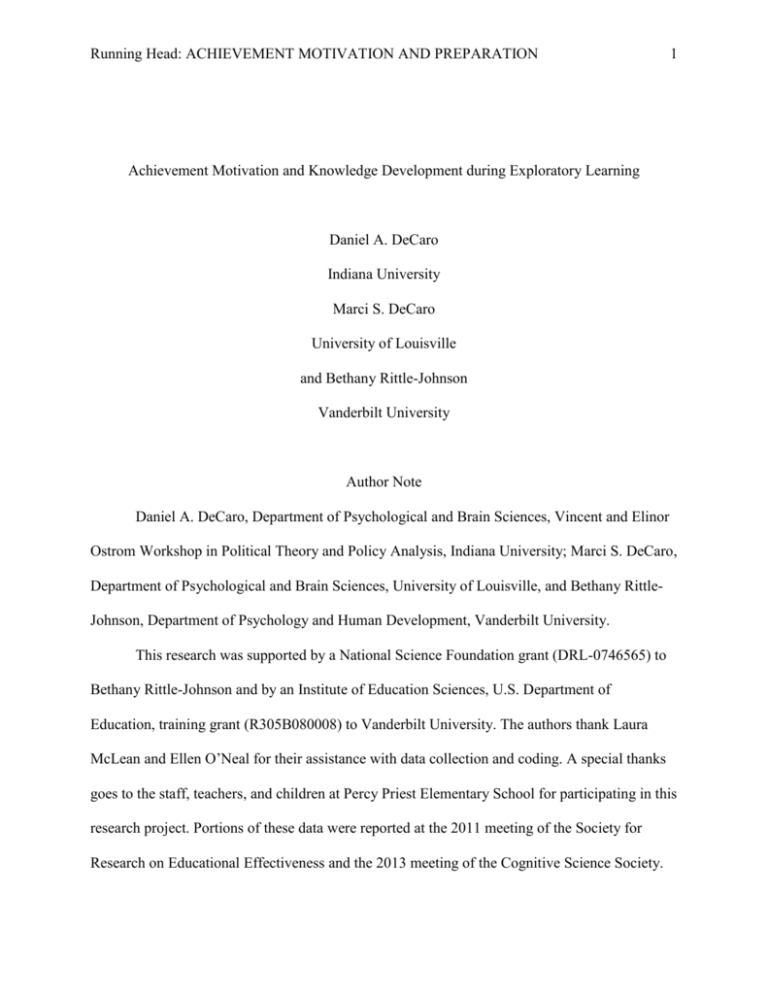
Running Head: ACHIEVEMENT MOTIVATION AND PREPARATION 1 Achievement Motivation and Knowledge Development during Exploratory Learning Daniel A. DeCaro Indiana University Marci S. DeCaro University of Louisville and Bethany Rittle-Johnson Vanderbilt University Author Note Daniel A. DeCaro, Department of Psychological and Brain Sciences, Vincent and Elinor Ostrom Workshop in Political Theory and Policy Analysis, Indiana University; Marci S. DeCaro, Department of Psychological and Brain Sciences, University of Louisville, and Bethany RittleJohnson, Department of Psychology and Human Development, Vanderbilt University. This research was supported by a National Science Foundation grant (DRL-0746565) to Bethany Rittle-Johnson and by an Institute of Education Sciences, U.S. Department of Education, training grant (R305B080008) to Vanderbilt University. The authors thank Laura McLean and Ellen O’Neal for their assistance with data collection and coding. A special thanks goes to the staff, teachers, and children at Percy Priest Elementary School for participating in this research project. Portions of these data were reported at the 2011 meeting of the Society for Research on Educational Effectiveness and the 2013 meeting of the Cognitive Science Society. 2 Address correspondence to Daniel A. DeCaro, Vincent and Elinor Ostrom Workshop in Political Theory and Policy Analysis, 513 N. Park Ave., Indiana University, Bloomington, IN 47408. Email: ddecaro@indiana.edu 3 Abstract Exploring a new concept before instruction can improve learning, but can also be challenging. Individual differences in achievement motivation influence how learners respond to challenge and may therefore moderate the benefits of exploratory learning. Higher mastery orientation generally yields increased effort in response to challenge, whereas higher performance orientation yields withdrawal, suggesting that mastery orientation may help individuals better cope with and learn from exploration. Second- through fourth-grade children (N=159) were given novel mathematical equivalence problems to solve as either an exploratory learning activity before instruction or as practice after instruction. Higher mastery orientation was associated with increased reliance on sophisticated problem-solving strategies during exploration and improved conceptual learning. In contrast, higher performance orientation corresponded with increased reliance on ineffective problem-solving strategies during exploration and impaired procedural learning. The current findings suggest that exploration prior to instruction can improve children’s adoption of sophisticated problem-solving strategies and heighten their conceptual knowledge, primarily if they approach learning with a mastery mindset. Keywords: achievement motivation, discovery learning, exploratory learning, mathematics, mastery orientation, performance orientation
